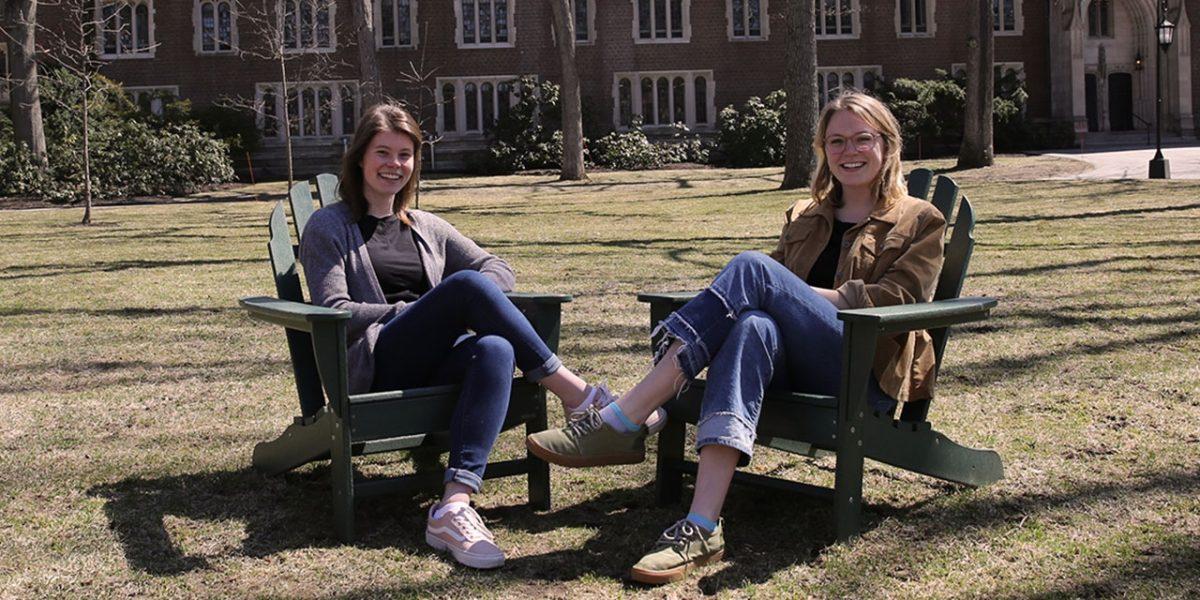The Watson Fellowship is a program which awards recipients a grant for year-long travel abroad. The participants propose a project to complete during their travel year and engage with the project through volunteering, participant observation, interviews and more.
This year, two Wellesley students were awarded the Watson Fellowship. Sophia Zupanc ’19 and Lucy Wanzer ’19 will both spend their year abroad after commencement this May. Zupanc’s project is titled “Dispatched from Death: Exploring How We Die” and will take her to several countries, including Greece, India, Australia, New Zealand and the Netherlands.
“The aim of my project is to explore how notions of a dignified death are constructed socially and medically in the countries that I visit,” said Zupanc. “I’ve always felt that there is so very much for me to learn about end-of-life care and death and dying since there are many disciplines that ask questions related to it. I am excited to learn from all those that I meet across those fields.
“My Watson year provides the opportunity to deeply engage with big questions that cannot really be understood, let alone answered, from formal study alone,” she added. “Perhaps the most important skill I will develop throughout my Watson year is how to not only engage with, but encourage, the exploration of discomfort and differences associated with death and dying.”
Wanzer will spend her Watson year studying small boats in island communities in order to understand how small boats connect people to the ocean. Her research will take her to Greece, Japan, Indonesia, New Zealand and Tasmania. She plans to connect with all sorts of people, like fisherman and boat builders, to gain a holistic perspective on the way small boats connect different communities. Some of the themes she will explore are fishing policies (specifically related to overfishing), wooden boat building techniques and the historical use of small boats, to name a few.
Both Wanzer and Zupanc’s love for their projects grew organically. Wanzer explained, “Growing up, I would spend weeks to months paddling canoes in the summer, and I really fell in love with the practice of paddling a canoe. To me, it is still the best perspective from which to see and understand the world. This is really the root of my project, and most of my love for the water was shaped by my time growing up in Maine.” She credits her inspiration for this path to her family and all the science teachers and professors she’s had, saying they all somehow sparked her curiosity in the natural world.
On the other hand, Zupanc became interested in her topic during her time at Wellesley explaining to The Wellesley News, “In the summer before my junior year, a doctor at Dana-Farber Cancer Institute was looking for a research assistant for a line of work that uses natural language processing techniques to improve care delivered at the end-of-life. Serendipitously, this opportunity arose at a time when questions related to serious illness were also at the forefront of my personal life. From the position and my own experience, I became very interested in public health — taking a number of health-related courses throughout many of Wellesley’s departments — and also started to volunteer at a local hospice.”
Zupanc’s advice for students interested in the Watson Fellowship is to visit the Fellowships Office. “[They are] always available to chat about a proposal, work out logistics, or provide counseling. Though I became convinced in my junior year that I wanted to apply for a Watson, because I heard about the Watson through one of the Fellowship Office’s informational seminars, they were a necessary and invaluable support system throughout the process.”






